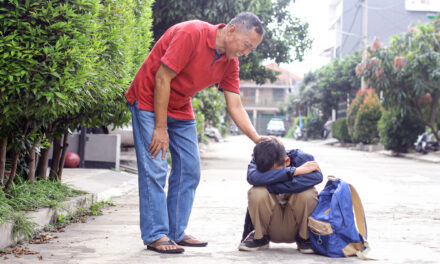MISSIONS IN A COVID CRISIS: TRAINING IMPLICATIONS
[8 Minute Read]
Contributed by Ruth W., Adult Education Consultant & Chair of the IMTN steering committee.
Dear fellow participants in God’s mission,
Grace and peace to you in the name of the Lord Jesus Christ.
In the heat of a crisis we may not have time to pause for long reflection, but the ceasing of things-as-they-were creates a space to ask “How should we respond?” The International Missionary Training Network (IMTN) has asked that question and responded by hosting a series of online conversations for trainers from every continent. These conversations have focused on questions that have been rumbling for decades, especially, how life-transforming, community-based learning can be effectively delivered online?
There will be no going back to classroom-only learning. The change is here to stay.
Accelerating Change
Within weeks Covid-19 has accelerated changes in training that were either already happening, or that had been long overdue for radical change. Before the Covid-19 pandemic brought the sudden closure of face-to-face classroom learning there were already many issues that perplexed missionary trainers around the world and a growing appreciation of the breadth of technologies available to support and enhance learning.
Some trainers – for example in Latin America, were leading the way with using Webinars, and models of blended learning were already well established in a number of places where students meet face -to-face for short periods but do much of the learning online. However, for most training institutions it was “business as usual” until March 2020.
Classroom learning was already under review. For example, in the UK some private, residential missionary training colleges had already closed and others continued to struggle with financial pressures and falling student numbers. For two decades a combination of factors had already raised the question whether residential classroom learning was sustainable.
In other parts of the world classroom learning was under review for very different reasons. For example, in Ghana there are large churches that are not only planting new congregations in every corner of Ghana but also in more than 90 nations of the world. With class sizes over a 100, a challenge is how to effectively equip pastors for cross-cultural gospel witness and how to deliver training fast enough to keep up with the demand!
Elsewhere, as the church hears the call to carry the Good News of Christ across cultures, pre-field missionary training is still emerging. Even where the church has been sending out workers in significant numbers for decades, as in China, leaders are reflecting on the challenges of cross-cultural life and witness and seeking to develop contextually relevant, life-changing, equipping training for those the church is sending out. In newer sending nations like Romania, there are now a few options to be equipped for cross-cultural life and witness and some already combine online and face-to-face learning.
In other parts of the world, where the church seems like a tiny drop in a sea of the majority religion, setting up classroom learning is fraught with difficulties, security being only one of the challenges.
My point is not that face-to-face classroom learning is over but rather that there will be no going back to classroom-only learning. The change is here to stay.
Take this opportunity to stop and reflect – to be reflective practitioners.
Back To The Basics
To wrestle again with the basics of teaching and learning is actually a gift for those trainers who will take this opportunity to stop and reflect – to be reflective practitioners. The ethos of the IMTN conversations is summarised by three phrases: Global perspectives, Creative mindsets, Small steps.
- Global perspectives – recognising that we need to listen to one another, as insights and wisdom from one context can illuminate, sharpen and enhance practice in another;
- Creative mindsets – recognising that we need to adopt new ideas and ways of teaching and learning, not simply the unexamined transfer of old material using new technologies;
- Small steps – recognising the power of small but intentional interventions in teaching that can have significant learning outcomes for our students.
The Conversation Continues
To date the IMTN online conversations have explored how to build community online, how to design and deliver online curriculum and how to build the capacity of trainers and learners for online learning.
For more information about how to join the IMTN or to join the online training conversations use the contact page on the IMTM website: http://www.theimtn.org/main/index.php/en/contact-imtn.
Pray
- For all trainers of missionaries as they seek God for wisdom regarding how best to build capacity and community in ways that enhance transformative learning outcomes.
- For missionary sending organisations (whether agencies or churches), that they would take advantage of new ways to equip missionaries for cross-cultural service, taking into account the challenges presented by potential post-pandemic realities.
- For training institutions as they think through the learning needs of gospel ministers in the days and years ahead, how to best resource their provision of training programmes and how to build knowledge, understanding and competency for real-world applications, adaptable ministry models, and whole-of-life engagement in God’s mission.






